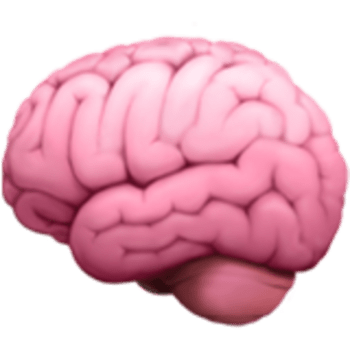Don’t read this blog. Think about it? Why should you read this blog? There are a functionally-infinite number of other things you could read and you’ve clicked this specific link on the internet. For what reason? An antagonizing title? Someone texted it to you? If you’re going to read something, anything, you have a choice, you know. You could read something recent, less recent, old, or you could read something really, really old. But I assume you want to read something good, something worth reading, at least. If you’re anything like me you read at the very least to be entertained, or distracted, perhaps, from other things you could or should do or be reading. But it’s also nice to read and learn something. It’s great to feel something too. Sometimes reading can do all of these things: entertain, educate, inspire. Sometimes you can read something and it will completely transform your life. This change can be acute. More often it is subtle and sustained over time. But this sort of transformation is always meaningful.
When I read something really good, it changes the way I look at the world. It improves my perception. It helps me understand something fundamental on a deeper level. It makes me a better person. Nonfiction can do this. Fiction can do this. Short poems and articles can do this. Eighteen-hundred-page novels and long-form journalism can do this. It doesn’t always happen, but something worth reading is really worth reading. Some books are so good, that if you read them, really read them, they will change you forever.
But here’s the thing, if you’re anything like me, you’ve read a bunch of stuff that hasn’t, as far as you know, induced any big change in yourself, or been that useful in any way, or you just don’t remember. I don’t know if I’m worse for reading this stuff, but if I don’t remember it, I’m inclined to believe that I would have been better off reading something else. Or doing something else. There’s lot’s of information I’ve consumed that strikes me as totally useless, a waste of time.
Don’t get me wrong, I’m not beating myself up about this throwaway reading. I just recently had the thought I’d be better off with less of it. Wouldn’t it be nice to only read stuff that was useful, illuminating— stuff that made you a better, kinder, more learned person? Even if you’re just reading for entertainment, wouldn’t it be nicer to read stuff that was really, really entertaining, rather than just distracting?
When I think about all the stuff that wasn’t particularly worth reading in my life, it’s mostly links on the internet. Of course, some links on the internet have changed my life for the better. Maybe 1/1000 links I’ve clicked have been reading experiences that substantially effected my world outlook. I’m grateful for those. But 90% of my throwaway reading has been links on the internet. At least. The rest of it consists of a handful of dumb self-help, (bad) spirituality, and management books that I obstinately powered through. I don’t feel so bad about those books, because they’re, well books, and not stupid links on the internet.
But what if I could eliminate those 999/1000 internet links from my life and just have the 1/1000 and then spend the rest of my reading budget on truly great books? What would it take to only read really awesome links on the internet? To really figure this out, I’d have to track everything I read and take notes on what was really awesome and what wasn’t.
I actually tried this for a few days and realized none of the links on the internet were really awesome. Some were good, but no really awesome ones from the hundreds I recorded over a few days. The good ones were all from the same blog that I really like, aside from a New York Times editorial that someone I trust texted me. So I got discouraged. Maybe it would just be easier to assume most links on the internet aren’t worth reading. Maybe I’ll just read good books instead. But what about good books? Will I have to go through 99 books to find 1 good one?
Again, the best way to find out is to keep track, which my Kindle already does for me! I looked back at my past 5 years of reading and discovered that, lo and behold, all of the books I read were worth reading. As in, none of them struck me as a total waste of time. Even the worst books were better than links on the internet. As many as a third of them were transformative in a minor way. One in five majorly changed my perspective on things. This is a way better rate than links on the internet.
I could break this down mathematically, but its not worth it. Really, just give your most conservative estimate for words read in articles on the internet and most generous estimate for what share of those words have been memorable or substantially meaningful to you. Even if you come out with a 20% rate, I bet it doesn’t compare to your experience reading books. For some reason, books are way better. If you give me some time, I bet I can remember the title and gist of 80%+ of the books I’ve ever read. I can tell you what they meant to me. When it comes to articles on the internet, I doubt I can even name 1% of the topics, titles, personal meanings, etc.
This is all predicated on the belief that reading only matters when you remember it. I’m aware of ways in which peripheral knowledge I’ve accumulated on the internet has popped back up as useful. As in, information that was in my consciousness but I couldn’t actively recall, place the origin of, etc. w/o the appropriate trigger. It happens, but I don’t remember when it did last. Doesn’t seem all that important.
So if you’re willing to accept this premise, (i.e. stuff worth reading is stuff that is easy to remember), which I pretty much am, it seems that reading books, and pretty much only books is the way to go. But what if we could further optimize reading so that instead of 1 in 5 books being super-duper awesome, it was 4 in 5? What do the super-duper awesome books in my reading history have in common? Turns out they were mostly, 60% plus, classics. 30% were really highly reviewed books that have been out for at least ten years. 10% were harder to place, but generally well reviewed books.
Yeah it turns out those old books that are on the best ever lists? They’re the best ever. The Lindy Effect (past lifespan ≈ future lifespan) is, well, real. Nassim Taleb summarizes it like this:
So all-in-all, what I’m saying here, is that if you’re going to read, why not just read a classic? Well, sometimes we might not be in the mood or have the attention span for fine literature. That’s fine too. Maybe read some nonfiction in that case— nonfiction that’s been around for a while and proved its staying power. Or perhaps you’re craving something even lighter, or recent. That’s fine, too. But make sure it’s a book. A recent book is almost guaranteed to do you better than a link on the internet.
If you really want to read a link from the internet, I suggest you go to your favorite content aggregator or platform, (mine is Hacker News) and look at the “top” links of say the past year or so. Those are bound to be much better than the top link from the day, or something someone texted you. Otherwise, I think you’re better off not reading links on the internet, unless they belong to sources you really, really trust and are consistently really really good. I like Scot Alexander’s blogs, Slate Star Codex and Astral Codex Ten. He’s earned my trust over years. But generally I don’t have too many other sources for links on the internet that regularly generate gold.
Sometimes I read the Atlantic, it comes out every month, or quarter, or something, and I read the paper magazine, or digital articles that have been around for a while. I like those, they tend to be pretty okay. Better than random links on the internet.
Otherwise I just read books, and I think you should, too. They’re better. Don’t read blogs like mine unless they consistently deliver you quality knowledge, insight, and entertainment. Just read great books instead, or even okay, recent books. A decent, recent book is a better bet than most links on the internet. Links on the internet are generally not that great, guys.



